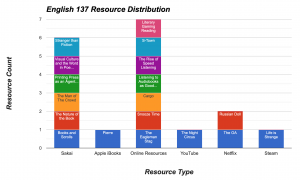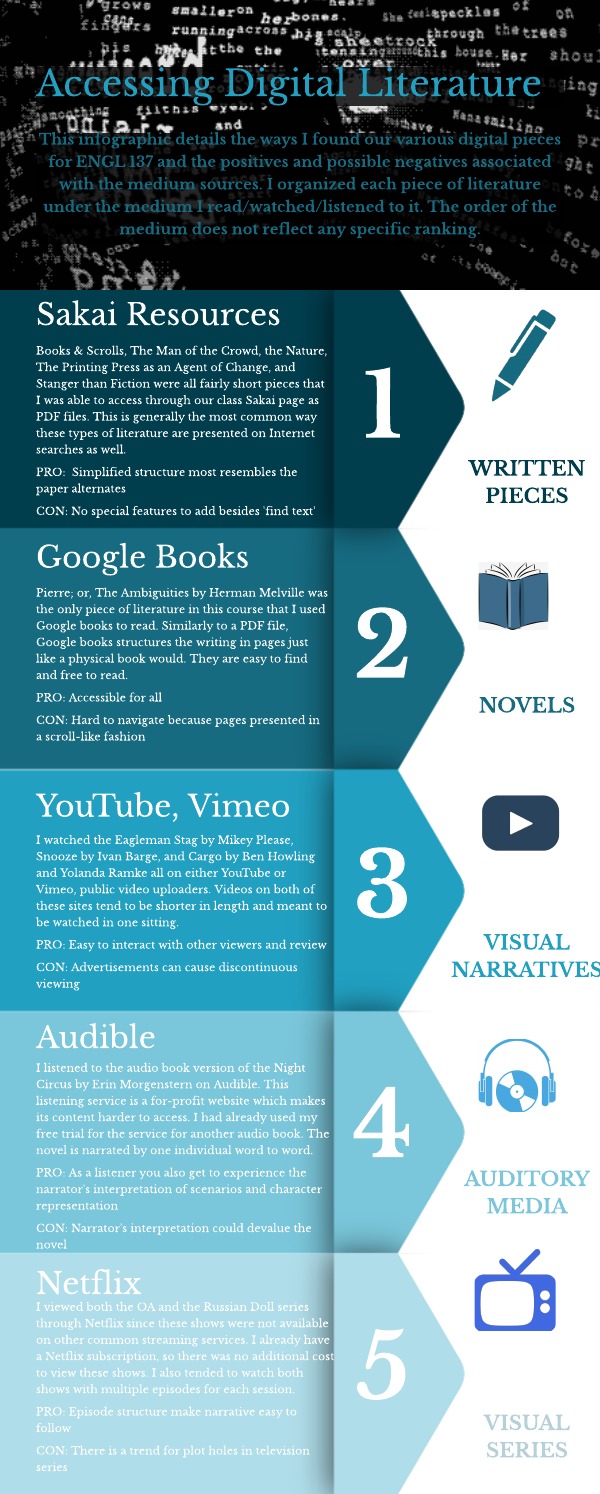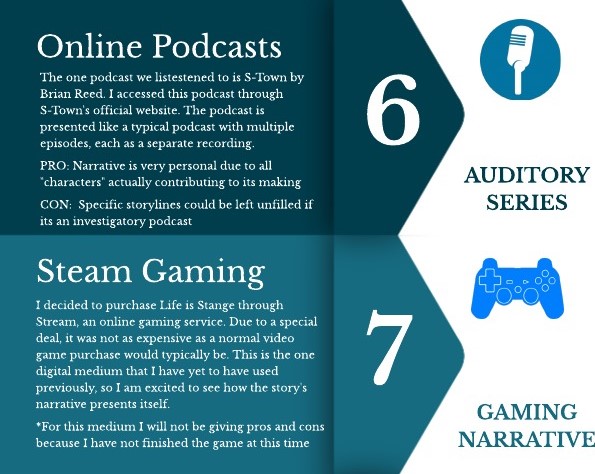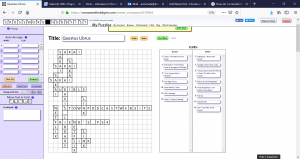This is a chart made using the Google Charts API (https://developers.google.com/chart/) in order to represent how I gathered all the literary resources necessary for our class. Now I will do a very brief breakdown of each category.
Sakai – As displayed by the graph, a majority of our class resources were able to be accessed through Sakai. This is good because Sakai is as we all know free and easy to access. The only con I can see is that it is Sakai.
Apple iBooks – My accessing of Pierre through this resource was a personal choice. It gave me both a free platform and I did not mind reading the quasi pdf version of Pierre.
Online Resources – Similarly as displayed by the graph this was another hot resource bed for our class. It likewise has the similar pro of being free and and easy to access.
YouTube – Another personal choice as again it was free and in my opinion was an improvement to the audible app (I found it to be a bit buggy as far as going forward and back).
Netflix – Possibly my favorite media platform and who doesn’t have Netflix (or some way to get on an account) which basically negates any price negative.
Steam – This platform was only used to play Life is Strange, although in it’s short tenure it has easily elevated itself to my least favorite. I originally thought price would be my issue with this but I actually ended up getting everything we need for under $5. My main issue comes with when I play the game, as my laptop sounds like it is going to explode when it tries to run the game.




